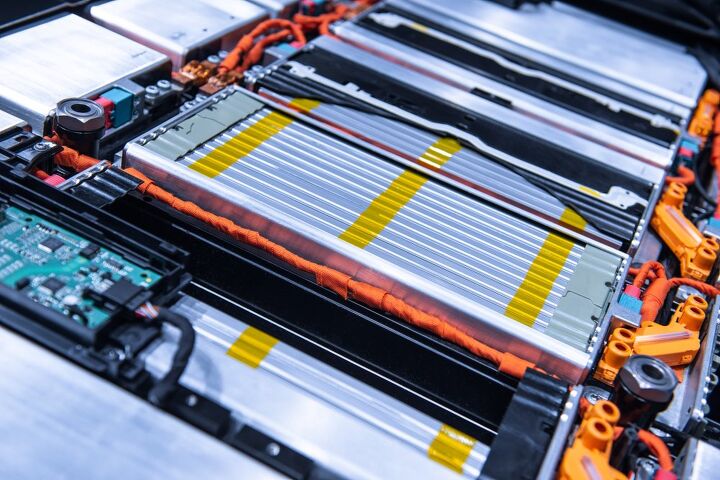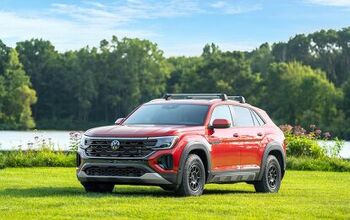Recycling EV Batteries Might Soon Become Booming Domestic Industry

Having covered the White House’s incredibly expansive and costly infrastructure plan, specifically as it pertains to transitioning the entire nation toward alternative energy vehicles, we’ve often found ourselves asking questions. Puzzlers include wondering whether or not consumers actually want this change and how can we possibly expect to pay for this when we’ve already starting conjuring money out of thin air for other government programs. We don’t even know where we’re supposed to get the rare-earth minerals necessary for production when mining them is heavily regulated in the United States and hardly an endeavor that would be considered kind to the natural landscape.
Last week proved that we weren’t entirely alone in pondering how all of this greenification is supposed to work.
On Friday, Reuters confirmed that numerous government agencies are pressing the Biden administration to do whatever it takes to procure the necessary materials for battery production. Though the existing plan relies almost entirely on shipping them in from other countries, which is detrimental in terms of air pollution and offshores what could have been domestic jobs. On the upside, all the disagreeable aspects of mining operations are left safely beyond our borders.
From Reuters:
As Biden makes fighting climate change and competing with China centerpieces of his agenda, the administration is set to wrap up a 100-day review on Friday of gaps in supply chains in key areas, including electric vehicles (EV).
These gaps include the minerals used in EV batteries and consumer electronics. The administration is also looking for ways to reduce metal usage in new battery chemistries.
Reports from various government agencies will be submitted to the White House, a process Biden ordered in an executive order earlier this year. Parts of the reports could be released publicly as soon as next week.
Democrats are pushing aggressive climate goals to have a majority of U.S.-manufactured cars be electric by 2030 and every car on the road to be electric by 2040.
Securing enough cobalt, lithium and other raw materials to make EV batteries is a major obstacle, with domestic mines facing extensive regulatory hurdles and environmental opposition.
We want electric cars because they’re supposed to be better for the environment but cannot mine the necessary materials because it would be bad for the environment. And our solution is to just ship everything across the ocean which (and feel free to correct me if I am wrong) is likely not going to be all that great for the environment.
Kind of a Catch-22 but some have posited that this could all be offset by domestic battery recycling. It’s something that the White House is reportedly been considering rather seriously.
“When you look at the way the U.S. has approached the recycling opportunity, what’s very evident is we need to invest in that capacity, we need to take a more proactive approach,” an administration official told Reuters. “A big part of the lithium opportunity is really recycling, and being a global leader in recycling the lithium from existing batteries and driving that into these new batteries.”
But the issue is that we don’t actually know for certain that mass battery recycling is actually more economical than simply digging new stuff out of the ground. Researchers at Aalto University have investigated the environmental effects of various recycling processes for electric car batteries, deciding that more R&D was ultimately needed before anything could be assumed. Hydrometallurgical recycling seems the way to go but there would still be an abundance of emissions and water usage that might not scale well when applied to a landscape where EVs are the norm. There are similar issues with battery disposal and increasingly more studies asserting that EVs need to be driven for extended periods of time to offset the pollution created by the construction and scrapping of their batteries.
Back in 2014, Proceedings of the National Academy of Sciences published a study examining EV pollution, attempting to account for every possible emission source from cradle to grave. While they could indeed outperform the average gas-powered automobile if driven until their batteries were basically incapable of holding a charge, EVs actually turned out to be worse for the environment when electricity was derived from energy grids that were heavily dependent upon coal.
The U.S. Department of Energy’s Argonne National Laboratory has been working hard to address these concerns and will likely see additional support from the current administration. It’s also assumed that America will see a domestic recycling push similar to what’s been implemented in the European Union.
If implemented correctly, it could save the country from seeing the full 8 million tons of battery scrap the U.S. government has estimated by 2040. It’s also supposed to keep us more competitive with China (which is ironically dependent upon coal-fired power plants). But it often seems that battery production and EVs benefit the Asian nation by default. China already dominates global battery production and has begun installing recycling facilities in other countries. Ganfeng Lithium Co. announced plans to build one in Mexico last fall.
Unfortunately, none of the data points to this being sufficient in transitioning toward an exclusively electric society. Under the most idyllic projections, recycling can only handle a fraction of the materials we’ll need for mass EV production. Without some kind of borderline miraculous efficiency breakthrough (hence the heavy emphasis on R&D), the world will need to multiply its mining operations several times over to ensure there’s sufficient cobalt, nickel, and lithium over the next couple of decades.
The Biden administration’s report is due on Friday. Perhaps we’ll get an answer or two before everything predictably degrades into a handout for various energy concerns and other preferred enterprises.
[Image: Sergii Chernov/Shutterstock]

A staunch consumer advocate tracking industry trends and regulation. Before joining TTAC, Matt spent a decade working for marketing and research firms based in NYC. Clients included several of the world’s largest automakers, global tire brands, and aftermarket part suppliers. Dissatisfied with the corporate world and resentful of having to wear suits everyday, he pivoted to writing about cars. Since then, that man has become an ardent supporter of the right-to-repair movement, been interviewed on the auto industry by national radio broadcasts, driven more rental cars than anyone ever should, participated in amateur rallying events, and received the requisite minimum training as sanctioned by the SCCA. Handy with a wrench, Matt grew up surrounded by Detroit auto workers and managed to get a pizza delivery job before he was legally eligible. He later found himself driving box trucks through Manhattan, guaranteeing future sympathy for actual truckers. He continues to conduct research pertaining to the automotive sector as an independent contractor and has since moved back to his native Michigan, closer to where the cars are born. A contrarian, Matt claims to prefer understeer — stating that front and all-wheel drive vehicles cater best to his driving style.
More by Matt Posky
Latest Car Reviews
Read moreLatest Product Reviews
Read moreRecent Comments
- Carson D I thought that this was going to be a comparison of BFGoodrich's different truck tires.
- Tassos Jong-iL North Korea is saving pokemon cards and amibos to buy GM in 10 years, we hope.
- Formula m Same as Ford, withholding billions in development because they want to rearrange the furniture.
- EV-Guy I would care more about the Detroit downtown core. Who else would possibly be able to occupy this space? GM bought this complex - correct? If they can't fill it, how do they find tenants that can? Is the plan to just tear it down and sell to developers?
- EBFlex Demand is so high for EVs they are having to lay people off. Layoffs are the ultimate sign of an rapidly expanding market.


































Comments
Join the conversation
I took my driver's test in a manual Toyota Corolla, instead of mom's huge Personal Luxury Pontiac Grand Prix...back in the day, you had a 3 speed slushbox, or a 4 speed manual. The slushbox had a primitive hydraulic computer, and any decent driver could out shift it. I had a few years of trail bikes so to shift was already programmed into my brain. Today, I can say the 9 speed in my Daily is faster than I am, is always in the right gear, has three shift patterns, and from rolling through town to the front straight at Pocono, never bobbles. I've two millennials...one wanted a stick specifically (and bluetooth for music !), the other is fighting it, and I may just give up because I"m teaching him the equivalent of learning how to modulate spark advance.plus..the EV world won't have a transmission as we know it. Since we are on the topic, we'll know EV have gone truly mainstream when all those outdoor electric outlets on buildings and in public places get locks on the covers.....
You will own nothing - and you will be happy. You are so commanded.